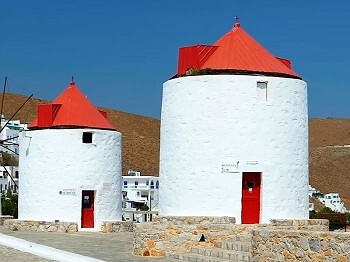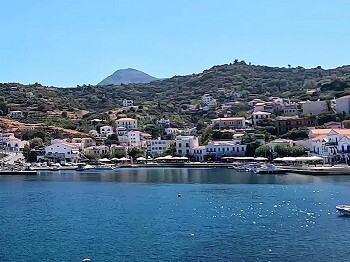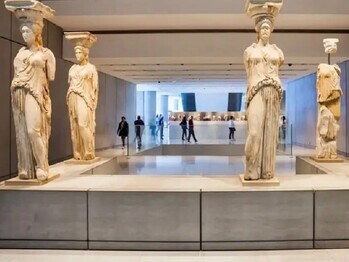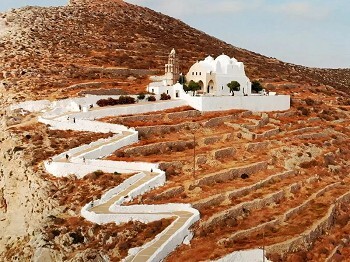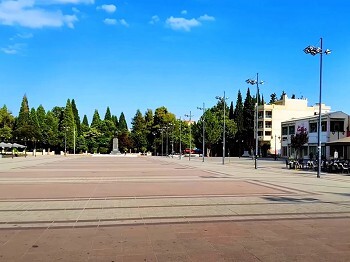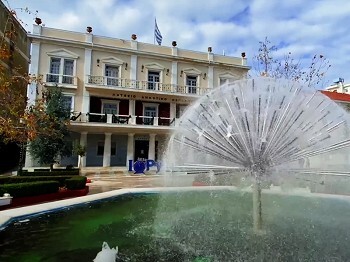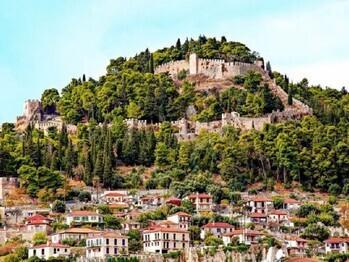Delphi – The Navel of the World
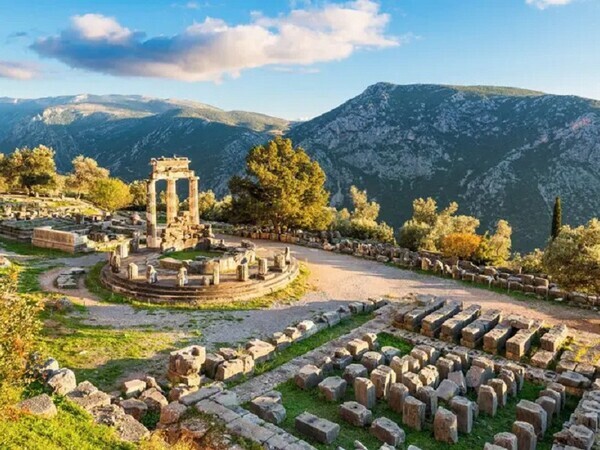
Situated on the picturesque slopes of Mount Parnassus, Delphi stands as the ancient Greeks' spiritual heart. Legend tells that Zeus released two eagles from opposite ends of the earth, converging in Delphi, thus designating it as the world's "navel" or omphalos. Delphi housed the famous Oracle of Apollo, where a priestess would convey the god's prophecies. Walking among the remnants of the Temple of Apollo and the Theater of Delphi, visitors are transported back to a time when pilgrims from across the ancient world came seeking divine wisdom.
Mycenae – The Kingdom of Agamemnon
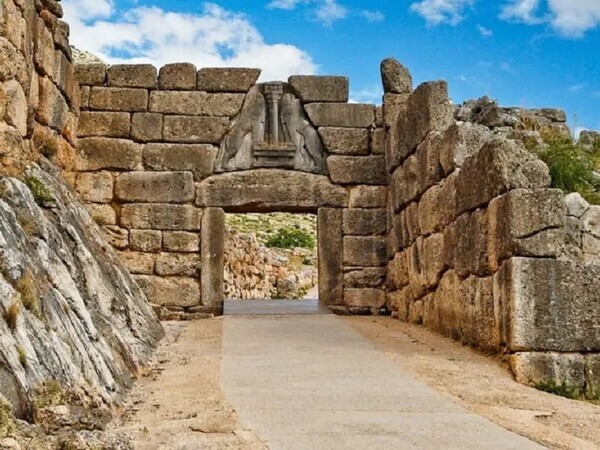
Located in the northeastern Peloponnese, Mycenae was once a formidable kingdom under the rule of the legendary King Agamemnon. In mythology, Agamemnon led the Greeks during the Trojan War, and his dramatic return home is central to Homer’s epic, the "Odyssey." The awe-inspiring Lion Gate, the Treasury of Atreus, and the palace ruins reflect the grandeur of Mycenaean civilization, forever etched in the tales of Homer.
Mount Olympus – Home of the Gods
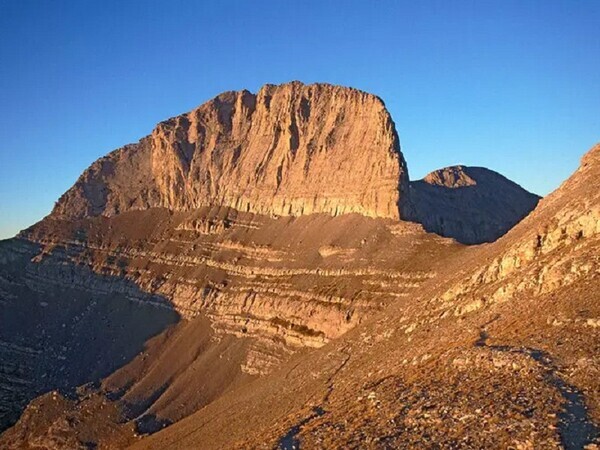
Standing proudly on the boundary between Thessaly and Macedonia, Mount Olympus is both a natural wonder and the fabled residence of the Twelve Olympian Gods. Greek mythology tells us that deities like Zeus, Hera, and Apollo made Olympus their home. Exploring Mount Olympus' trails offers not only spectacular views but also a profound connection to the divine presence that once inspired ancient Greeks.
Knossos – The Labyrinth of the Minotaur
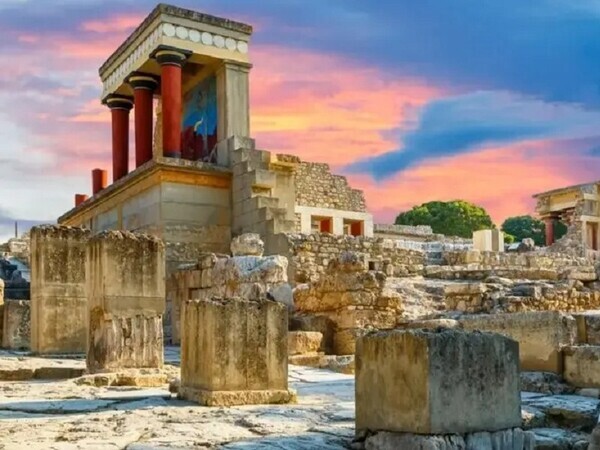
The ancient city of Knossos, located on the island of Crete, is steeped in the myth of the Minotaur. According to legend, King Minos built a labyrinth to imprison the Minotaur, a creature with a man's body and a bull's head. Heroic Theseus ventured into the labyrinth to defeat the Minotaur and save the Athenian captives. Exploring Knossos today, visitors can delve into the intricate history and mythology of this storied site.
Epidaurus – Sanctuary of Asclepius
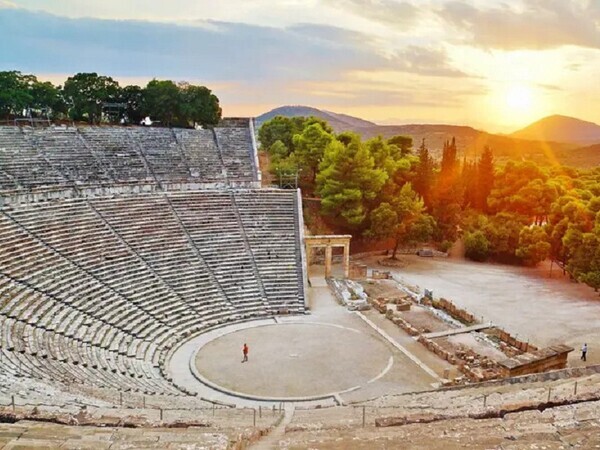
Epidaurus, in the northeastern Peloponnese, was dedicated to Asclepius, the god of healing. Mythology tells us that Asclepius had the power to heal and even bring the dead back to life. The site includes the remarkably preserved Theatre of Epidaurus, famous for its exceptional acoustics and healing ceremonies. Pilgrims sought relief and divine healing here, tapping into the mythical essence of Asclepius.
Troy – City of the Trojan War
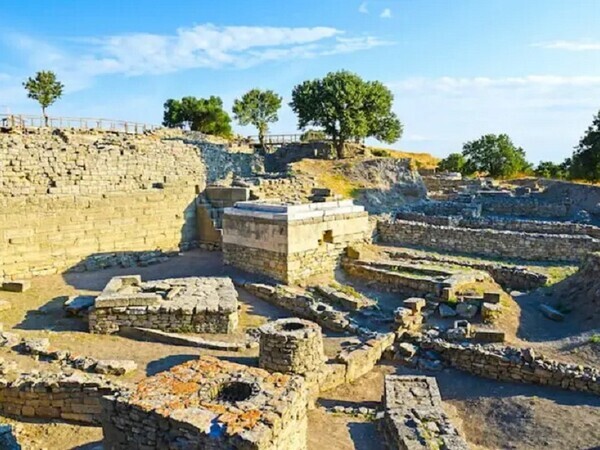
Troy, forever immortalized in Homer’s "Iliad", is an archaeological treasure located in northwestern Turkey, near the Dardanelles. The city is the legendary stage of the Trojan War, sparked by Helen of Sparta's abduction. The iconic wooden horse symbolizes cunning and led to Troy's fall. Visiting this ancient site, travelers can imagine the ancient city walls and immerse themselves in the echoes of a mythical war that fascinated the ancient world.
Temple of Poseidon at Cape Sounion – God of the Sea
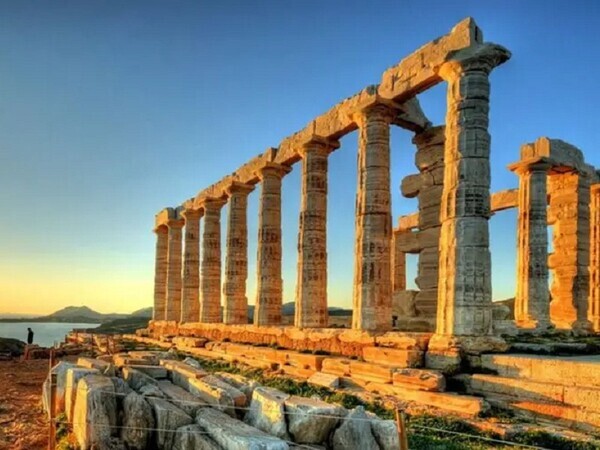
Dramatically positioned on the cliffs of Cape Sounion overlooking the Aegean Sea, the Temple of Poseidon honors the god of the sea. In Greek mythology, Poseidon was one of the Twelve Olympian Gods and ruler of the oceans. The temple's breathtaking location offers stunning sunset views, adding a divine touch to the site. In ancient times, sailors would make offerings here to Poseidon, hoping for safe and favorable journeys.

